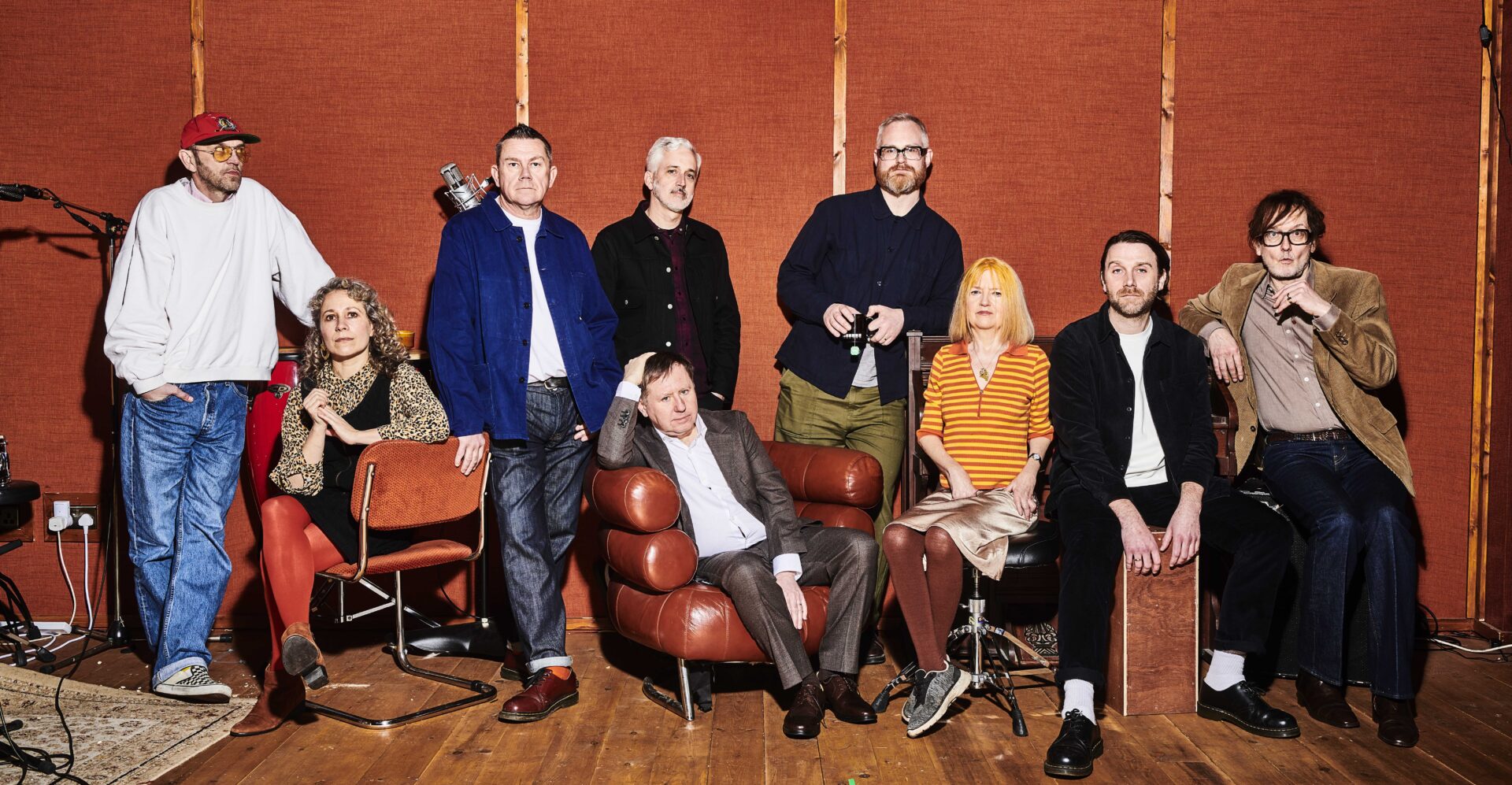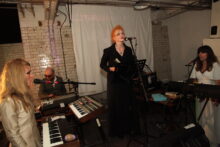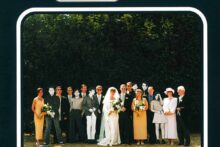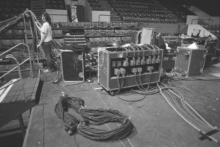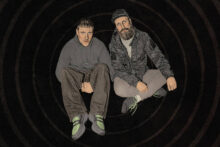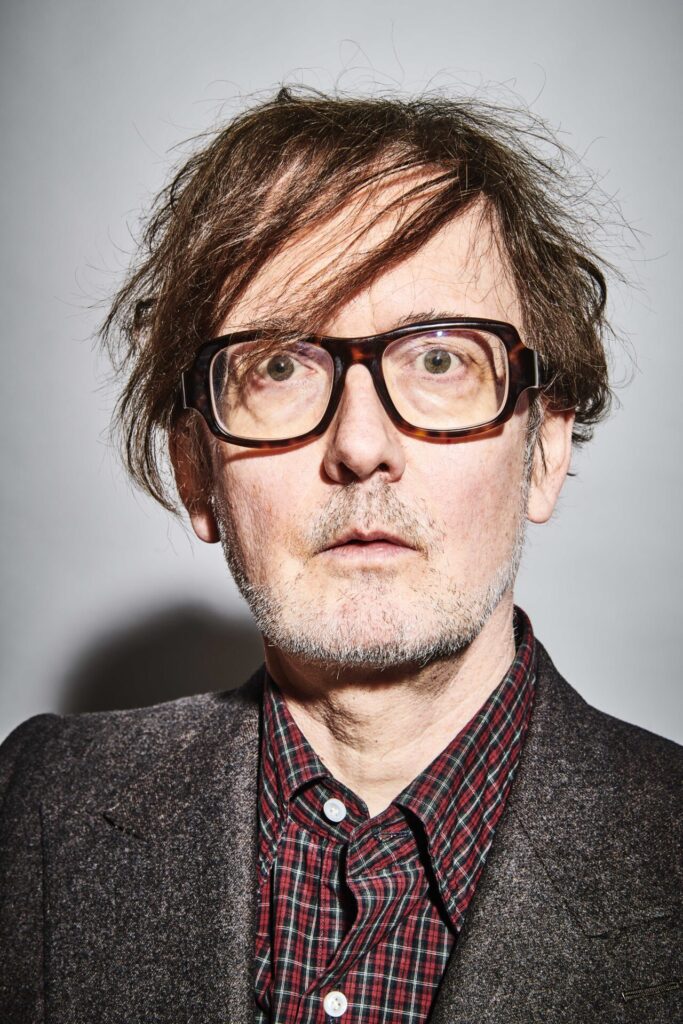
Pulp have always been the exception. Even at the height of Britpop, they were the misfit’s misfits. They demonstrated the power that could attend not fitting in. One of the canniest writers on class, alienation and desire, Jarvis Cocker brought a subversive eye, via Gainsbourg and Brel, while the band brought sex and the autodidact North to a cultural scene that badly required all of the above. Their ascent coincided with a surprise slot at Glastonbury in 1995, replacing the band people wanted (The Stone Roses) with the band people needed. 24 years since their last album, Pulp’s return feels triumphant, to an unexpected degree. More feels like an open-hearted many-edged album, from joyous gospel-like incitements like ‘Got To Have Love’ to the transgressive sexual undercurrents that run through ‘My Sex’, ‘Grown Ups’ and ‘Slow Jam’. They have always been something that shouldn’t work, like all paradigm-altering groups, and yet they do, because should is the enemy of everything worthwhile in culture.
I meet Jarvis Cocker outside a restaurant at the edge of a London park and he’s wearing a dapper tweed suit that makes him look like a time traveller. He has that same angular quality in person as he does on stage. There’s always an initial fear that your image of someone, through their work, will have no connection to the real person and your ego will implode upon exposure to the discrepancy but Cocker is generous, self-effacing, and curious. It took many years for Pulp to become an overnight success. It took only a few weeks to make an album that fans waited on for almost a quarter of a century for. More seems like an album that wanted to be made, whatever the band’s intentions were.
He admits that it wasn’t on some schedule. They didn’t have a record deal. No label hangs on to a non-recording band for 24 years, not even Pulp. The initial spark, six years ago, was Cocker being invited to write a song called ‘Hymn Of The North’ for the Simon Stephens play Light Falls. “The story was about a woman who dies after nicking booze from a supermarket and then she can see what her children are up to but she can’t help them.” He says the playwright donated the song’s title and some lyrical fragments from the script: “I should probably give him some publishing.”
But he embellished this skeletal frame with details from his own situation: “You can’t help it. Especially because the play was about a mother and her kids. When I wrote it, my son was 16. It was obvious he would eventually leave home but, all of a sudden, it seemed like it was going to happen quite quickly. That freaked me out.”
He considered how long he would often go between phone conversations with his own Mum and thought, “If he does that to me, I’ll be really upset.” During the play’s 2019 premiere the song was performed with string arrangements, seeding the attractive idea: “We’ve never done that with Pulp…”
The band, who reformed in 2022, initially just to play live, worked on a band version of the song during a tour the following year with auxiliary viola and keyboard player Richard Jones taking care of the string arrangements. Cocker offers a blunt: “It gave us something to do in soundcheck.” But then admits the song went down well with their fans when they played it on the second night of the tour, a hometown gig in Sheffield. But still the idea of an album had to be treated gingerly. Unspecified tensions are hinted at when he talks of not wanting to freak anyone out, the perception being that an album might take anything up to two years’ of everyone’s time. Perhaps this is why, when the idea took on solidity, and then actually started happening, More was recorded ridiculously quickly, sometimes a song a day. He laughs: “It shot out.”
Cocker describes their Walthamstow studio, belonging to the album’s producer James Ford, as “not posh” but immediately hymns its multiple cosy, technical and practical advantages. But as Pulp have gotten quicker at working, they’ve also expanded in size: “We’re growing! Every time I look behind me there’s another two musicians. It’s a big band… like Earth Wind And Fire.” Talking about the mixture of musicians who make the current line up – including Relaxed Muscle and All Seeing I’s Jason Buckle who is “determined not to learn what the notes to songs are” – he says: “It’s a weird…” He corrects himself: “It’s an interesting mixture of people. The band has to have a structure, a balance.”
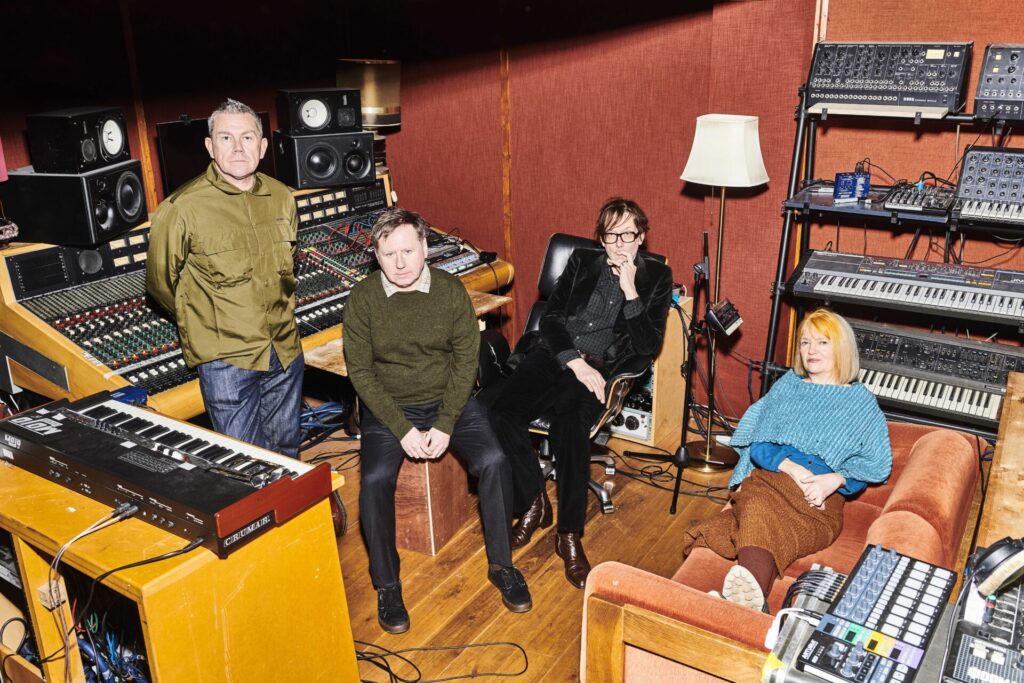
I run my half-baked thesis that the best bands are the ones that seem, look and sound like the unlikeliest – Roxy Music, Funkadelic, The Fall, Talking Heads, Dr. Teeth and the Electric Mayhem. “The good thing about bands, really, is they are a process of adapting yourself to other people’s strengths and weaknesses. When they work they make this weird, unique, interlocked thing. The guy from Sleaford Mods kept saying that when I saw him, ‘It shouldn’t work on paper.’ Two guys on a stage. One dancing around, hitting a space bar. But when something works…”
The practice of recording quickly completes a circle of sorts however: “When we started out, we had no choice. We just had to go into the studio and record as quickly as possible. It’s the first time since then that we’ve done that. There’s not been a lot of jiggery pokery, other than playing to the odd click track. I think that’s why I’m quite proud of the record.”
On the topic of their origins, I last saw Jarvis projected onto the walls of the Horse Hospital for the launch of Jamie Taylor’s book for British Pop Archive Studio Electrophonique: The Sheffield Space Age covering the city’s unique electronic music scene during the 1980s and the enigmatic guiding figure of Ken ‘The Colonel’ Patten. Unfortunately, the projector glitched and we never got to hear what Jarvis had to say, his image being frozen mid-sentence. There was something poetic about the moment, given the wonders that Sheffield musicians had created with limited resources back in the day compared to the technology available now.
Cocker lights up at the mention of Patten and remembers meeting him at the start of the 80s: “It was really cheeky. We just walked round to his house in Handsworth because it was so close to where I lived. I thought we’d got the address wrong because it was a semi-detached house with a caravan on the drive on a housing estate. So, we knocked on the door and asked, ‘Is this Studio Electrophonique?’ We had to take our shoes off before we entered. There was an 8-channel desk in the kitchen. We went upstairs and he had a Simmons electronic drum kit in the master bedroom. I don’t know if I’m remembering it correctly but in my mind the bedroom was all pink with fluffy carpet with this drum kit in the middle of it.”
Groups like Vice Versa, who went on to become ABC, recorded at The Colonel’s house. It was perfect for such Sheffield electronic innovators because they just plugged their equipment into the desk. Cocker remembers: “After we finished recording, Ken said ‘Do you know that ELO song ‘Mr. Blue Sky’? The sound is made by a vocoder which costs around £700 but I made one. Guess how much it cost?’ I said I’d no idea. He replied, ‘50 pence.’ He’d been a pilot in the war, and they’d used throat mics to communicate that worked by picking up the vibrations created by the larynx when it was too loud to be heard otherwise. He’d recycled the components he already had to make a vocoder. The reason it cost 50p was because the effect was so quiet, so you had to sing through a toilet roll tube, and that’s how much the toilet paper cost.”
Did you feel part of that whole Sheffield Space Age scene? “We were too young really. I remember going into town and seeing a poster for The Human League playing live. It really caught my attention because there was a picture of Batman on it, my obsession as a kid. But I couldn’t go because I was 14. Cabaret Voltaire used to go to this pub up the road, and sometimes we’d go in and see them in the corner. But we couldn’t go up and start talking. They were like proper grown-ups. I only got to meet Mal [Stephen Mallinder of Cabaret Voltaire] years later. Plus, we played guitars. Sheffield was famous at the time for the drummer-less trio. It was all synths. And we had one, but we didn’t really know how to make it work. We were more like a traditional band, I guess.”
There’s a hilarious – though hilarious now rather than at the time – story Mallinder tells of Cabaret Voltaire’s first gig in Sheffield, which resulted in “a bit of a riot” and ended with him being hospitalised. Cocker recognises the thorny idea of crowd control when playing live in the city. After leaving home, he squatted in a nearby disused factory where he found a WW2 air raid siren: “It was fucking loud, so there was a short period where we would set it off at the start of our gigs. We played Brunel University and there were all these rugby fans in the audience expecting Ivor Biggun or someone like that. So, we set the siren off and they went a bit mad… We lasted about four songs, and then we had to take refuge in the dressing room.”
The writer David Keenan has a great line, ‘It’s not easy being Iggy Pop in Airdrie.’ Just by standing out you were inviting grievous bodily harm. Derry and Belfast were similar. All working class cities really. The quickest way of getting your face kicked off was to dress like you were in Pulp; which we did, and learned the hard way. What was it like being the actual Jarvis Cocker in Sheffield? And when did you learn what that entailed?
He says: “Yeah, it was like that. There was a nightclub called The Limit we went to two times a week. To get there from the factory we lived in, you couldn’t go through town directly or, you’d definitely get beaten up or get a lot of abuse. We had to work out a route through back streets, in order to be safe. I never got really badly beaten up but there were others who did. The worst one was when I was going back to my mother’s, waiting for the night bus, and some kids came by. I had a patent black mac on, and they started shouting ‘Someone’s left the rubbish bags out for the morning.’ I got on the bus, and I made the mistake of giving them the finger, forgetting the bus waited there for 10 minutes while everybody got on. One of them came on and he shoved his kebab into my face. It wasn’t so bad, but I was sat there with all this horrible stuff hanging off me and it pushed my contact lens behind my eye.”
There is something defiant as well as pensive in his voice, “To decide to be different wasn’t something to do lightly. It was going to impact your life.”
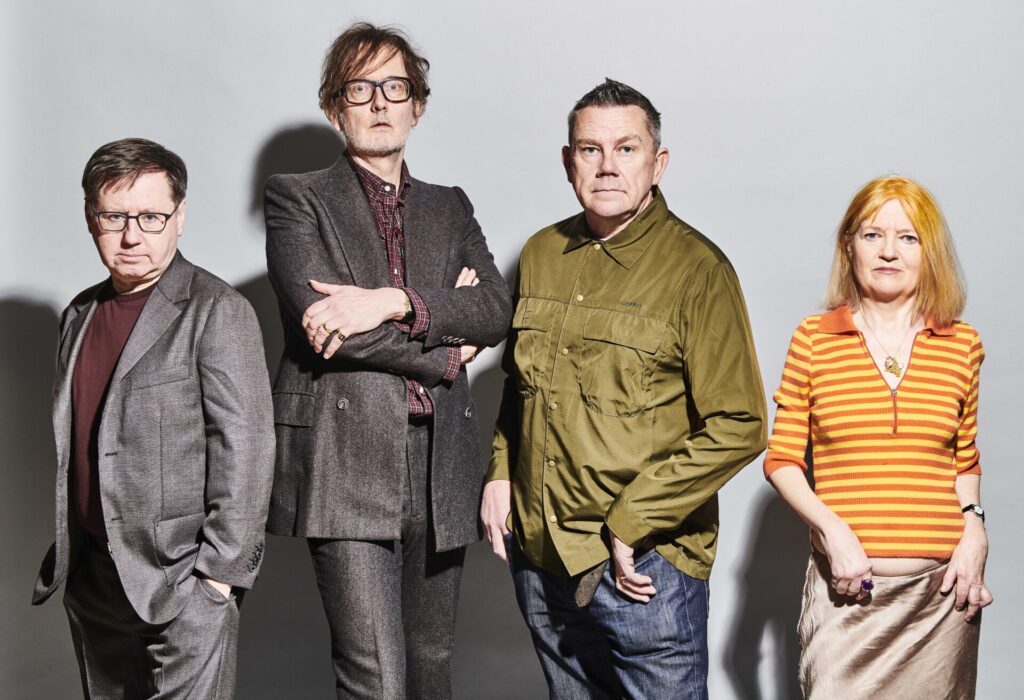
It was this route that first brought me into contact with Pulp. A cassette taped by the first girl I loved with His ‘n’ Hers on one side and Different Class on the other (minus ‘Bar Italia’ as it ran out of tape, forever making that song mysterious to me). All of it appealed but ‘Mis-Shapes’ was like a manifesto, a rallying call for all the freaks, oddballs and fuck-ups. Equally formative however was a documentary series Cocker made in the late 90s on outsider art called Journeys Into The Outside, a kind of ‘Mis-Shapes’ for artists. I tell him that I think it may have changed my life and not necessarily for the better, that maybe I could’ve been a lawyer if I hadn’t seen it. Mortifying as it sounds, I then spent years creating secret art movements, writing manifestos and creating collages but forgetting to tell anyone what I was doing. It all got buried as youthful folly but, from several decades’ distance, there was at least a kind of purity to such an endeavour.
I ask Cocker what attracted him to outsider art: “It was how they lived, inside the art, 24 hours a day. It was quite something when we were featuring a married man and you could see his wife clearly wishing they could just live in a normal house. I discovered outsider art in the library at Saint Martins college. The course I came down to London to do wasn’t super-academic, which was mainly why I chose it but still had to write a thesis. I was looking through the library and saw the spine of this book by Roger Cardinal.”
Asked for highlights of filming he says, “We went to Grandma Prisbrey’s Bottle Village in California, which was the only female environment we covered. But it seemed to largely be a male thing, and not always coming from a healthy place. The French call it art brut, it’s quite a raw thing. Not adulterated or refined and sometimes the splurge can make you think, ‘Ok, don’t show me that.’ Yet sometimes you get amazing art and it’s good to be reminded what art is for. It’s not about money. That’s the only reason art gets in the papers now, if something goes for £24 million but that’s not the point of it.”
Resisting nostalgia and an idealisation of the past is important, but it does feel like we live in a sort of aftermath. There was a time between the early 60s and late 90s, when working class or even lower middle-class culture had a chance of succeeding, aided by the dole, squats, art colleges, which allowed the time and space to create and develop. But then it changed: “Student loans came in. The fact that you’re going to come out, after three years, owing a lot is a terrible start to adult life. I nearly went to court actually for not paying the fees myself. I was thinking of maybe refusing to pay them as a stand. What [these changes eventually] did to art colleges was turn them into a way to get money from overseas students, charging them three times the domestic amount and then as soon as they finished the course not letting them have a visa, meaning they couldn’t stay on. It doesn’t seem like the point of art college at all.”
There’s something expansive about the musical palette of More. At times, it made me think of listening to the radio as a child and having no sense of the parameters of music and just having your tiny mind continually blown. In a way, it’s a way of discovering how vast the world and its possibilities are, when you’re living in a brutalist snow globe. A black and white world becoming colour. The transmissions from elsewhere proved there was an elsewhere and it made you see the environment around you in a different way.
Cocker pinpoints the discovery of Peel, in particular the promise of hearing punk, as the most influential thing for him in terms of radio; and it led directly to the first Pulp Peel Session in 1981: “I was 17 when they asked us to do it, the drummer was 15. We were a bit of a nightmare in the studio as it was our first time, apart from our visit to Ken Patten’s house. We thought you had to fill all the tracks in by overdubbing takes but the engineer was saying ‘This is supposed to be a live session!’ But it gave me the confidence not to go to university when I got to the end of school. I thought, ‘I’d like to be a pop star, so what’s the point?’”
He reveals, at several points, that he struggles with the idea of the atomisation of society in the digital age due to the pressures of social media; occasionally distracting himself to what feels like the edge of madness. He says it is an idea that surfaces, for example, when he sees people watching entire gigs through their phones, which he was very aware of at a very recent Iggy Pop gig.
He says the nearest he ever came to actually going “doolally” however was caused by a different, more analogue type of dislocation. He says it was after “that Michael Jackson thing”. In 1996, just a year after scoring two number two singles and a number one album, Cocker, along with former Pulp member Peter Mansell, jumped on stage at the Brit Awards to protest a particularly bombastic performance of ‘Earth Song’ by Michael Jackson, while he was surrounded by child actors and a rabbi, by wafting his backside at the singer. Cocker was initially arrested on suspicion of assault but was released without charge, quite famously, with some assistance from former solicitor Bob Mortimer. The event, seen at a distance, feels like little more than ill-advised and drunken but ultimately harmless hi-jinks; but it made him something of a notorious figure to the tens of millions of red top and blue top tabloid readers in the UK.
He says: “I couldn’t really go out anymore. I was just in this flat in Maida Vale. When you’ve got no outside, you turn inwards. You pick yourself apart. So that’s my message. That’s my big message. Get out more.”
The recurring theme of More seems to be a desire for communion with people. There’s sleaze and hints of debauchery in there of course – as well there should be – but there’s an uplifting sense of connection, a sense of rejecting social atomisation. The idea of love is the elephant in the room: “I used to be very embarrassed that I couldn’t say that word… love. It was weird. I grew up listening to love songs and wanting to experience it, but I found the word… It took me until I was approaching 40 years old to actually say it.”
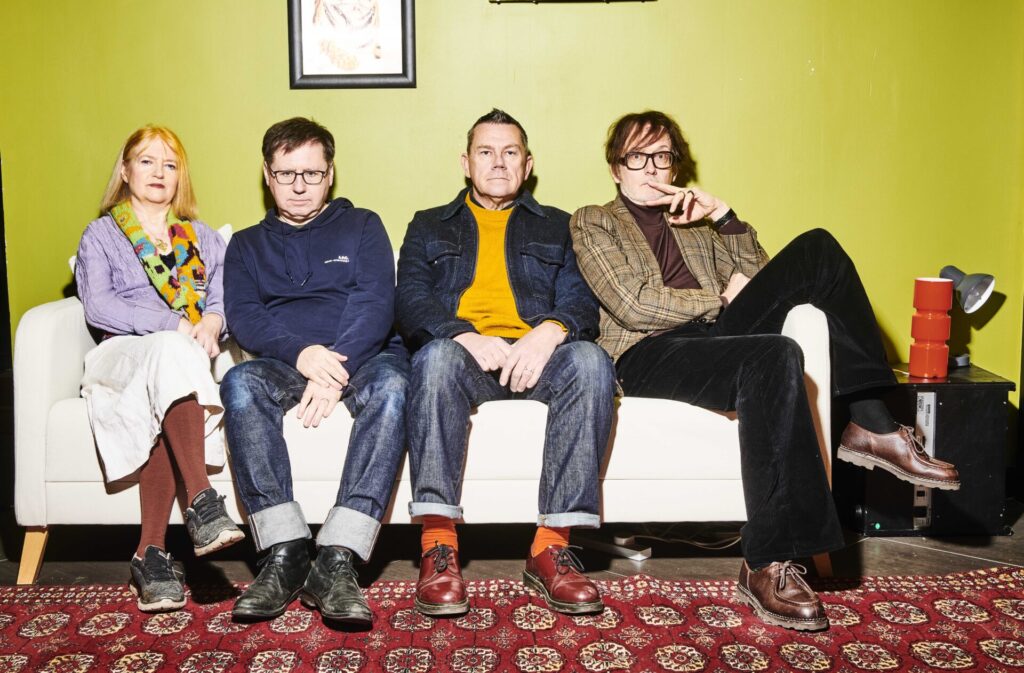
Few musicians have explored the theme of male desire, and how women are impacted by it, as eloquently as Cocker. The entire spectrum is there from the liberating to the monstrous. I wonder what it’s like to spend a career puckishly exploring the male gaze, as Cocker has, in times where it can be portrayed as innately problematic. One song on More stands out in this regard – ‘Tina’ – a love song entirely about dislocation, “We’re really good together cos we never meet.”
He says: “[The relationship] is perfect because it doesn’t happen. It can be anything you imagine because you don’t actually need the person. I can’t even say I knew [“Tina”]. I just wandered into the same room as her [when I was younger] and thought I’d talk to her, but she got talking to somebody else. When I was living in Sheffield, sometimes I’d bump into her in really weird places. Like once there was a snowstorm, so we went sledging and she walked across the top of the road. Being a shy person, when that happens you think it’s like a sign from God or fate. You think, ‘This person is important.’ You can carry those ideas around with you for a long time.”
He says that song really concerns the problematic idea of there being an “ideal place” for a person; that an entire lifespan can be spent thinking about this: “I used to think that’s what pop stardom would be; that I wouldn’t have to deal with normal life but it’s not like that. You have to actually live your life, otherwise there’s no point in being alive. The guy singing ‘Tina’ has got issues. Obviously, I’m singing it but I’m trying…” He tapers off before adding: “Well, it’s something I used to do that hopefully I’ve grown out of.”
One of the clues to understanding where Pulp came from, and where it feels they are returning to on More, can be found in Cocker’s book Good Pop, Bad Pop (2023), centred around a series of stories about his childhood and formative years as a musician, sparked off by objects found in his attic: “There was a lot of stuff I’d hung onto since childhood and I brought the crème de la crème down to London with me from Sheffield. I used to carry it around in bin bags from squat to squat. Eventually I bought a house in East London and put them all in the loft there but I never really lived there; I went off and lived in France. It always bugged me: why had I stored this stuff and why was it important to move it from place to place?”
When he split up with his girlfriend, he says, something instinctive told him to, “Look in the loft.” Looking for answers to certain repetitive, destructive habits, he looked through the bags and, he suggests impishly, “perhaps” he found what he was looking for as he got back together with his girlfriend and they went on to get married. He describes their contents as “all over the place”, a melange of weird objects, abandoned writing projects, childish collections and moth-eaten clothes. He says the objects were the most powerful, talismanic things he found, discounting all of the writing as juvenilia, but was blown away on finding a long forgotten about exercise book which contained his “full masterplan for having a band”.
He adds: “It was lucky I paid attention to the inner voice which said, ’Don’t throw this stuff out.’ I felt like an archaeologist digging myself out of all of this crap. The objects I rediscovered were most useful because when I saw them it unlocked memories that I would not have had access to, through writing alone.”
Memories you forgot you had? “Exactly. They come back much more vividly because they haven’t been on constant repeat, like you telling someone your life story in a pub. They exist underneath the surface of your mind.”
The follow up which he is writing now will cover his life after moving to London and Pulp’s ascendency during the mid-90s. His stash of careworn aide-mémoires are still in play, although how helpful they are to him outside of the writing project is a moot point: “You know those trolls with the hair? I can remember being a kid, holding one and saying, ‘This is mine.’ It’s a really powerful thing. But then there was also a bit of soap I’d had for years which I then lost. I ended up buying some vintage soap off eBay and tried to wash it down to the same size as the original to replace it. It’s a borderline mental illness but I hope it’s finally under control.”
He agrees with the suggestion that it’s a process of trying to convert negative experiences into something positive: “That’s a big thing with creativity. By using a bad experience in order to create something you’ve neutralised it. You can have a humiliating or a dangerous experience but own it. Take ‘Joyriders’, which is about the time we broke down and these guys said we’ll take you to the garage followed by the realisation that they were stealing the car and it was actually a dangerous situation. If you convert the experience into a song you can alter it, and maybe even turn it into something good.”
Pulp’s More is out today via Rough Trade. A UK, Irish and American tour begins tomorrow

